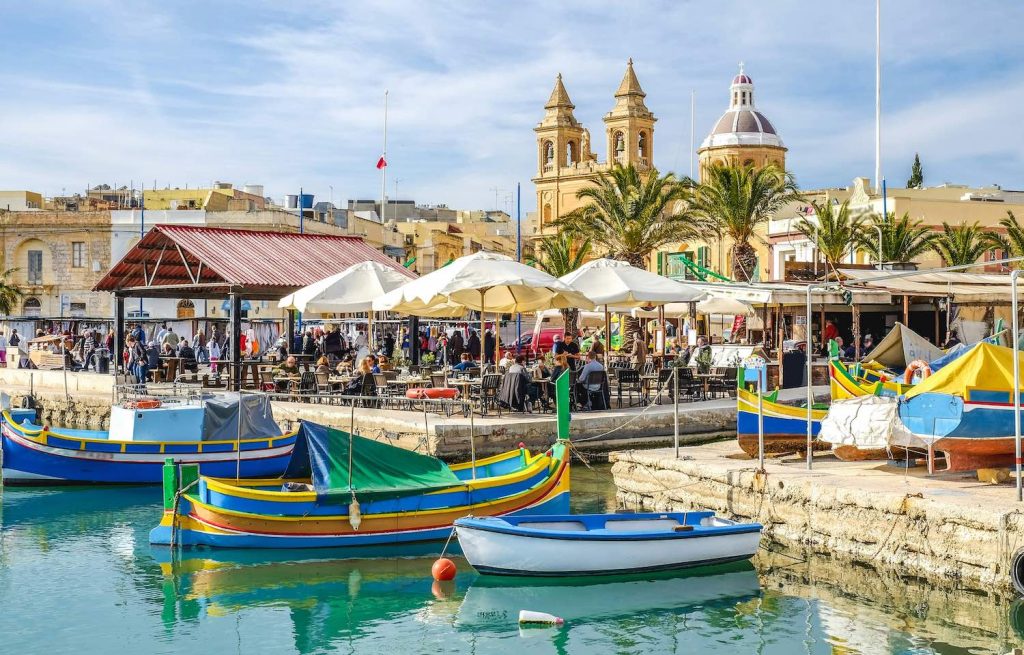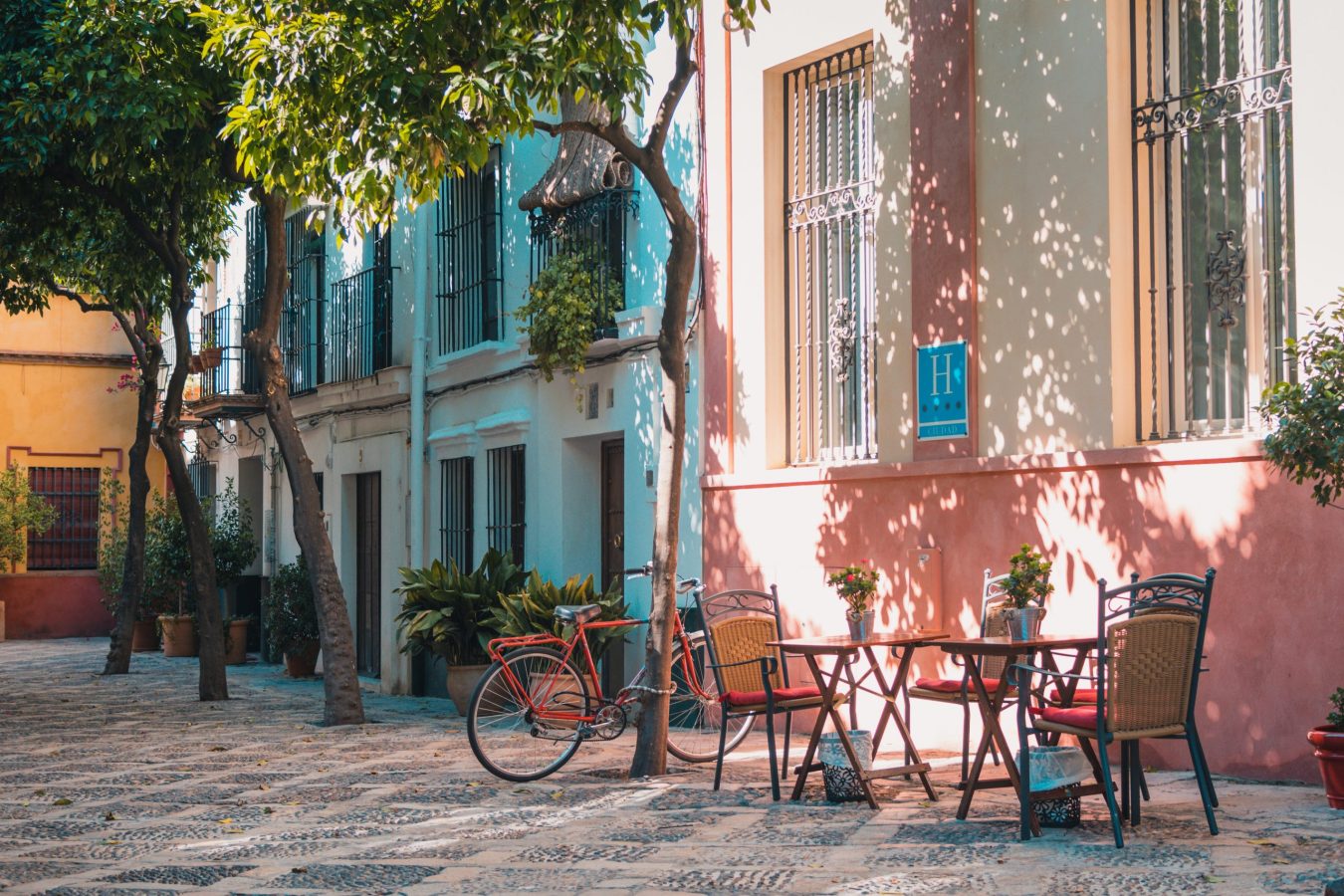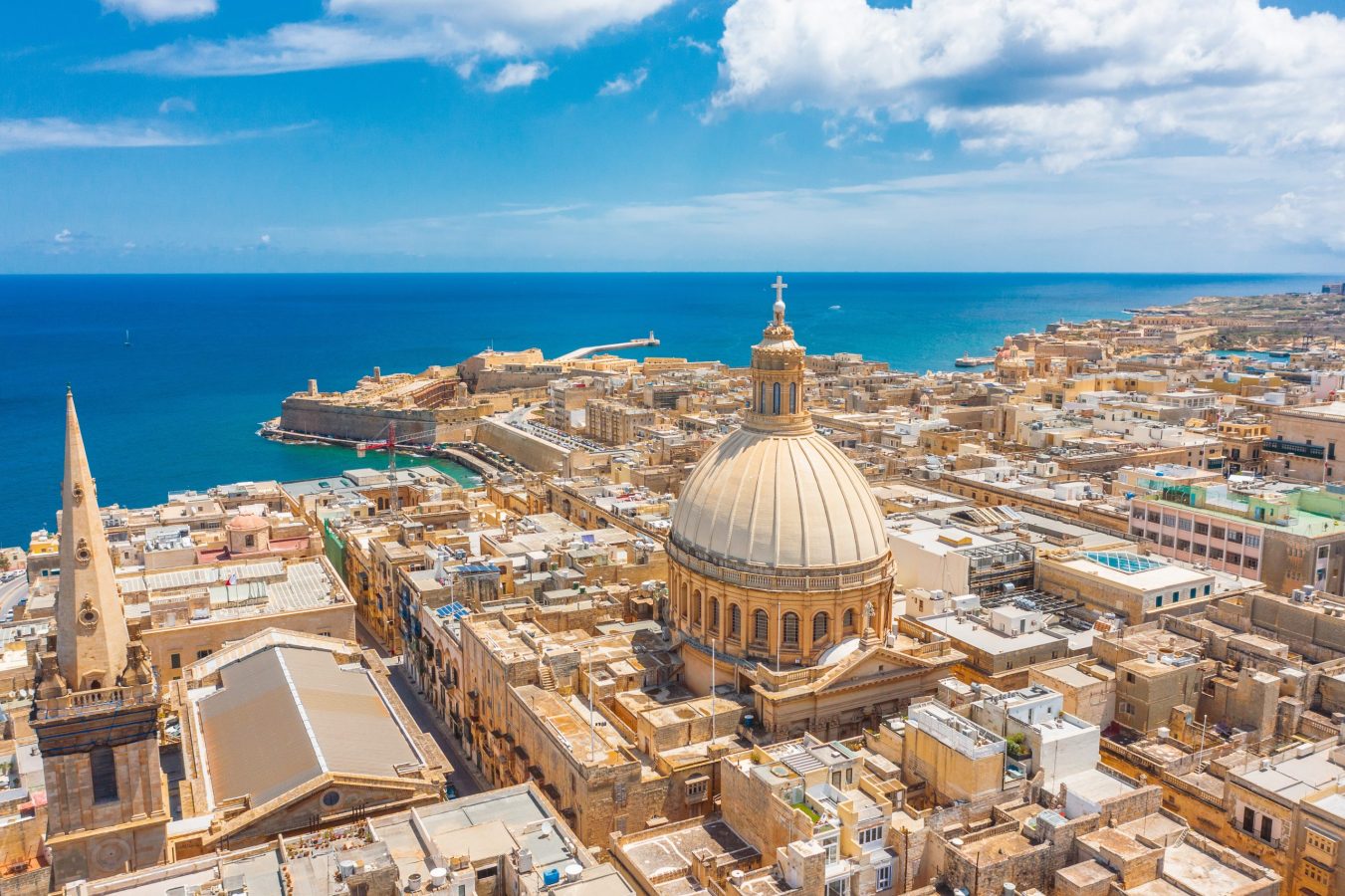Home - Moving to Malta - Living in Malta as an Expat: The Pros and Cons
Living in Malta as an Expat: The Pros and Cons
Insights into living in Malta for temporary residents

Table of Contents

The concept of living in Malta, with its rich history, vibrant culture, and stunning landscapes, offers an intriguing blend of traditional Mediterranean lifestyle and modern living. In this exploration, we delve into what it truly means to embrace life on this enchanting island, especially for those contemplating moving to Malta.
As we embark on this journey, our focus will be on unraveling the tapestry of experiences that constitute living in Malta as an expat. This island nation, famed for its hospitable locals, warm climate, and architectural marvels, has attracted a diverse community of expatriates seeking a unique blend of tranquility and adventure. But what lies beneath the surface of its apparent allure?
This article aims to offer a comprehensive perspective, shedding light on both the alluring aspects and the potential challenges of relocating to Malta. From the sun-drenched beaches to the bustling streets of Valletta, we will navigate through the myriad of factors that make Malta a paradise for some and a compromise for others. By examining the pros and cons, from the cost of living and healthcare to the cultural nuances and lifestyle adjustments, we endeavor to provide a balanced view that can guide those considering making Malta their new home.
Join us as we explore the realities of living in Malta, providing insights and firsthand accounts that will illuminate the path for future expats. Whether you're drawn by the promise of a Mediterranean lifestyle or seeking a change of pace, understanding the intricacies of life in Malta is the first step towards a successful transition.
The lure of Malta for expats
A Mediterranean Jewel Beckoning Expatriates
The allure of Malta for expatriates is multifaceted, combining a welcoming climate, a relaxed lifestyle, and a cultural landscape steeped in history. This small archipelago, nestled in the heart of the Mediterranean Sea, has emerged as a beacon for those seeking a life that balances leisure and opportunity.
1. Idyllic Climate: A year-round paradise
A key factor drawing expatriates to Malta is its idyllic Mediterranean climate. The island boasts over 300 days of sunshine per year, offering mild winters and warm, bright summers. This sunny disposition not only enhances the everyday living experience but also provides ample opportunities for outdoor activities. From leisurely strolls along the beach to exploring the rustic countryside, the weather is an ever-present invitation to enjoy the natural beauty of Malta.
2. Lifestyle: Relaxed pace meets modern comforts
Living in Malta means embracing a lifestyle where the pace is relaxed, yet every modern comfort is within reach. The island's size ensures that everything is conveniently accessible, from historical sites and natural parks to contemporary shopping centers and entertainment venues. This balance makes Malta particularly appealing to those who seek a quieter life without sacrificing the amenities of modern living.
3. Cultural richness: A tapestry of history and tradition
Malta's history is a rich tapestry that weaves together various cultural influences, from the Phoenicians and Romans to the Knights of St. John. This legacy is evident in the island’s architecture, art, and festivals. Expatriates in Malta enjoy a calendar filled with vibrant festivities and events, celebrating everything from religious feasts to international arts festivals. The Maltese archipelago is not just a place to live; it’s a place to experience a living history.
4. A Melting pot of cultures
As a crossroads between Europe and Africa, Malta has evolved into a melting pot of cultures, attracting a diverse international community. This multicultural environment is particularly inviting for expats who seek a global village atmosphere. It offers a unique opportunity to mingle with people from various backgrounds, enriching the expatriate experience.
5. English-speaking convenience
The widespread use of English, one of Malta's official languages, eases the transition for many expatriates. This linguistic advantage is a significant draw, making daily life, from business to social interactions, more accessible for those moving to Malta.
Pros of living in Malta
Discovering the many perks of Maltese Life
The allure of Malta for expatriates goes beyond its sun-kissed beaches and azure waters. This section delves into the tangible benefits of living in Malta, showcasing why it has become a favored destination for those seeking a new home abroad.
1. Exceptional quality of life: Serenity meets beauty
One of the most significant advantages of living in Malta is the exceptional quality of life it offers. The island's climate is a major contributor, with its endless sunny days and mild Mediterranean winters providing a comfortable environment year-round. This agreeable weather complements Malta’s scenic beauty, from its rugged coastlines and tranquil beaches to its rolling hills and historic walled cities.
The pace of life in Malta strikes a perfect balance between leisure and activity. The relaxed Mediterranean lifestyle allows residents to slow down and appreciate the simpler joys of life, such as a leisurely meal at a seaside café or a sunset stroll along the marina. This laid-back atmosphere is a stark, refreshing contrast to the hustle and bustle of more hectic urban centers.
2. Cultural richness: A journey through time and tradition
Malta is a treasure trove of cultural heritage. The island’s history spans over 7,000 years, featuring influences from various civilizations that have left their mark. From the ancient Megalithic temples, some of the oldest free-standing structures in the world, to the baroque splendor of Valletta, the capital city and a UNESCO World Heritage Site, Malta is a living museum waiting to be explored.
Festivals and local feasts (known as 'festas') are a cornerstone of Maltese culture, providing a colorful and lively glimpse into the island's traditions and community spirit. These events, celebrated with great enthusiasm, feature processions, fireworks, and music, offering a vibrant social scene for both locals and expatriates.
3. Language: A lingua franca for expats
Malta’s bilingual status, with English as one of its official languages, is a significant advantage for expatriates, particularly those from English-speaking countries. This linguistic benefit simplifies everything from conducting business and accessing government services to socializing and integrating into the community. The prevalence of English eases the initial adjustment period and helps foster a sense of belonging among new residents.
Cons of living in Malta
Navigating the challenges of Maltese life
While Malta offers a host of benefits to its residents, it's important to acknowledge and understand the challenges one might face when moving to this Mediterranean island. This section aims to provide a realistic perspective on some of the disadvantages that expatriates may encounter in Malta.
1. Cost of living: A price for paradise
One of the primary concerns for many considering a move to Malta is the cost of living, which can be relatively high, especially in popular expat areas like Sliema, St. Julian's, and Valletta. Housing prices in these prime locations have risen significantly, partly due to the island's growing popularity and limited space. This increase extends to rental prices, making it a considerable factor for those on a fixed income or budget.
Beyond housing, everyday expenses such as groceries, utilities, and transportation can also add up, although they may still compare favorably to costs in other European countries. Prospective residents should carefully budget for these expenses and weigh them against their income or savings.
2. Infrastructure and overcrowding: The urban strain
As Malta's popularity has grown, so too have the strains on its infrastructure. Traffic congestion is a notable issue, particularly in densely populated areas and during peak hours. The island's small size and increasing number of vehicles on the road can lead to significant delays, affecting daily commutes and travel plans.
Overcrowding, particularly in tourist hotspots and urban centers, can also impact the quality of life. This influx of visitors and new residents has put pressure on public services and amenities, sometimes leading to crowded public spaces and overburdened facilities.
3. Insularity: The small Island dynamic
Living on a small island like Malta comes with a unique set of challenges often described as 'insularity.' This term encompasses various issues, including a limited availability of certain goods and services, a sometimes insular mindset among local communities, and a feeling of being 'cut off' from larger mainland countries. While this can foster a strong sense of community, it might also pose challenges in terms of diversity of experiences and opportunities.
For some, the small size of Malta can feel limiting, especially for those used to living in larger cities or countries. The island's geographic isolation can mean less variety in shopping, entertainment, and dining options compared to larger European capitals.

Evaluating Malta as a place to live
A Balanced Perspective on Maltese Living
Deciding whether Malta is a good place to live requires a careful consideration of various factors that impact daily life. This section aims to provide a balanced overview, weighing the pros and cons from different perspectives, including lifestyle, work, and social life.
1. Lifestyle considerations: The mediterranean charm
On the lifestyle front, Malta excels with its relaxed Mediterranean pace, stunning natural beauty, and a climate that promotes an outdoor lifestyle. For those seeking a slower pace of life, with a focus on personal well-being and enjoyment, Malta is an attractive option. The island's rich history and cultural heritage offer a unique living experience, filled with exploration and discovery.
However, the flip side includes the high cost of living in popular areas and the issues of overcrowding and infrastructure. These factors can impact your day-to-day lifestyle, especially if you're accustomed to a more spacious or less expensive living environment.
2. Work and career opportunities: A growing economy
Malta’s economy has been steadily growing, with sectors like technology, gaming, and finance experiencing significant expansion. This growth offers career opportunities, particularly for professionals in these industries. The island's EU membership also provides certain advantages and stability for businesses and employees.
Yet, the job market can be limited in scope compared to larger countries, and the insular nature of the business community might pose challenges for newcomers seeking to establish themselves. Networking and local connections often play a crucial role in career progression in Malta.
3. Social life: Community and connectivity
Malta’s small size fosters a tight-knit community feel, which can be a boon for forming close social connections. The presence of a sizable expat community also offers a sense of familiarity and ease for newcomers. Additionally, English being widely spoken eases social integration.
Conversely, some expats may find the social scene limited, particularly those used to the variety and anonymity of larger cities. The insularity mentioned earlier can sometimes extend to social circles, making it a challenge to penetrate established groups.
4. Balancing the scales
Ultimately, whether Malta is a good place to live largely depends on personal preferences and priorities. For those who value a serene lifestyle, rich cultural experiences, and a friendly community, Malta scores high. However, for individuals seeking a bustling metropolitan life, diverse career opportunities, or a low-cost living environment, Malta might present certain limitations.

Thinking about moving to Malta
As we draw our exploration of living in Malta to a close, it's clear that this vibrant island offers a unique tapestry of experiences, each colored with its own shade of charm and challenge. Malta is not just a place on the map; it's a lifestyle, a community, and for many, a newfound home under the Mediterranean sun.
The decision to move to Malta, like any significant life change, is deeply personal and multifaceted. It involves balancing the allure of Malta's relaxed pace, cultural richness, and scenic beauty against practical considerations like cost of living, infrastructure, and the dynamics of island life. What stands out, however, is the undeniable warmth of the Maltese community and the island’s ability to quickly feel like home.
Your journey to Malta with Globexs
For those who feel the call of Malta's azure waters and sunny skies, the journey is just beginning. Finding the right accommodation is a crucial step in making your transition smooth and enjoyable. This is where Globexs comes into play – your trusted partner in finding the perfect accommodation for your stay in Malta. Check out our offer of rentals in Malta.
At Globexs, we specialize in easing the relocation process for expatriates. We understand that every expat's needs are unique, and our extensive portfolio of rental properties is curated to cater to diverse preferences and requirements. Whether you're seeking a quaint apartment in the historic streets of Valletta or a modern home in the bustling heart of Sliema, we are here to ensure that your Maltese residence is more than just a place to live; it's a place where life's best moments unfold.






